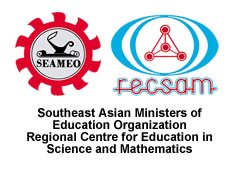Learning Science and Mathematics (LSM) Journal Vol.1, Issue 15, pp 149-158
The TIMSS Grade 8 Student’s Science Achievement: A Comparative Study between Malaysia, Singapore, and Japan
Nur Sahrizan Serman, Corrienna Abdul Talib, Faruku Aliyu & Marlina Ali
Received first draft 24 January 2020. Received reports from the first reviewer (4 April); second reviewer (23 July). Received revised draft 14 October
Accepted: 23 November 2020.
Published: 30 December 2020
Abstract
When measuring the quality of education of a nation, it is necessary to consider the global standard and preference. Owing to this reason, Trends in International Mathematics and Science Study (TIMSS) is an international body that regularly carries out an international comparative study to measure the participating countries’ achievement in mathematics and science for 8th -grade students in an effort to evaluate International Educational Achievement. Malaysia, Singapore, and Japan joined the program in an attempt to drive the benefits of the assessment and know the level of quality of their mathematics as well as science education referenced to global standards and perspectives. This study employed the use of secondary data obtained from the official website and database of TIMSS 2015. After analyzing the data, Singapore and Japan were spotted as the top two Asian countries that outperformed in science grade 8 of TIMSS 2015 with an average score of 597 and 571 respectively, while Malaysia was reported as 24th on the list standing below-average with a score of 471 compared with the two countries topping as 1st and 2nd positions. Some of the possible reasons are that; while Singaporean students and school administrator resilient and persistent having curriculum emphasizing spirit and scientific inquiry as well as Japanese parental education and early educational goals for student interest in science contribute are seen as factors that help them achieve a higher ranking in TIMSS. It was concluded that Malaysian students also have the potentials of getting to the top position if they emphasize the critical curriculum components of both Singapore and Japan as well as how it was implemented. This study implies that the structure of the 8th -grade Malaysian science curriculum and how it is implemented needs to be reviewed for better productivity and enhancement of science students’ achievement.
Keywords: TIMSS; Grade 8; Science students; Achievement
© 2020 SEAMEO RECSAM LSM Journal
More Article
...

